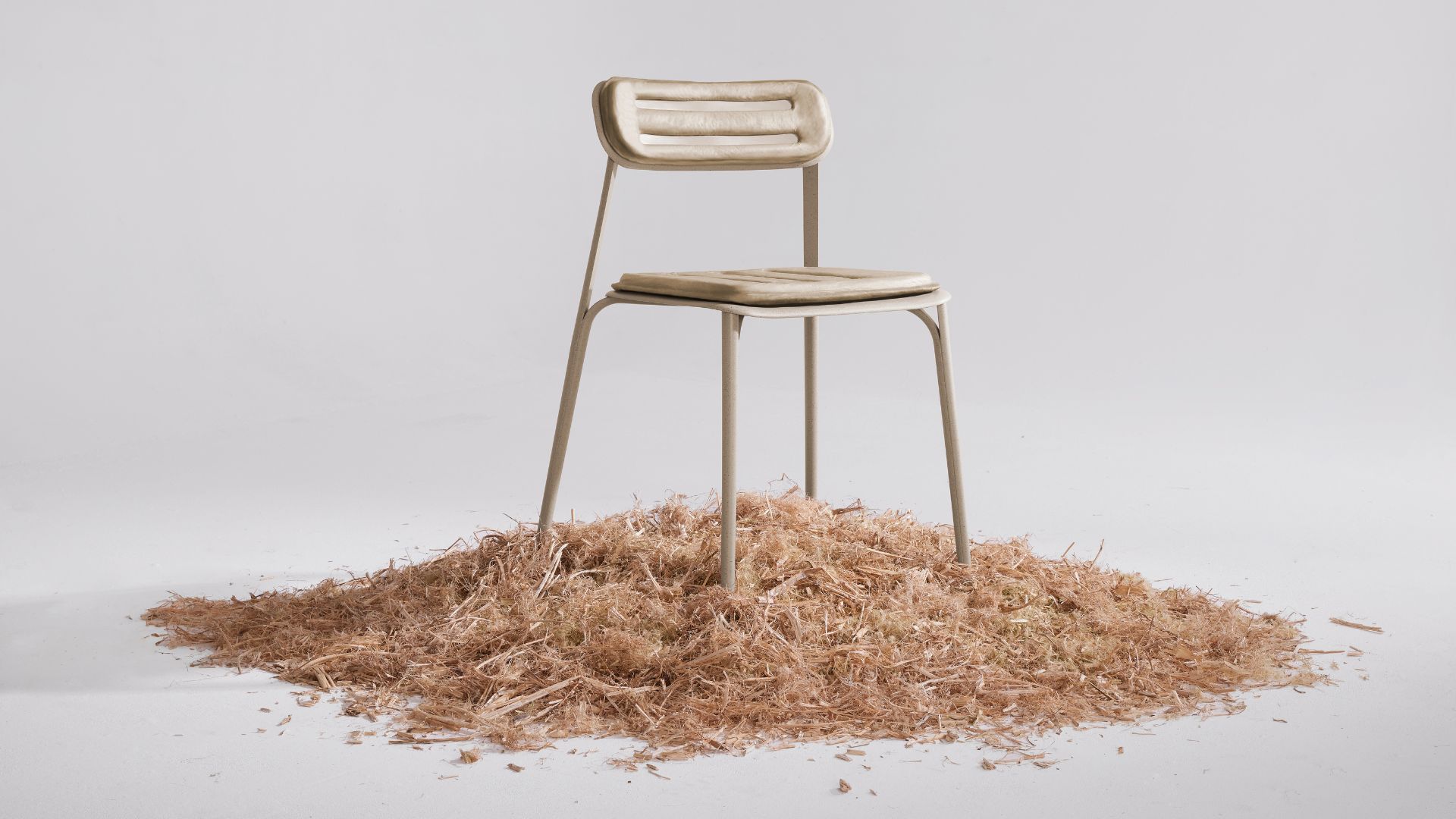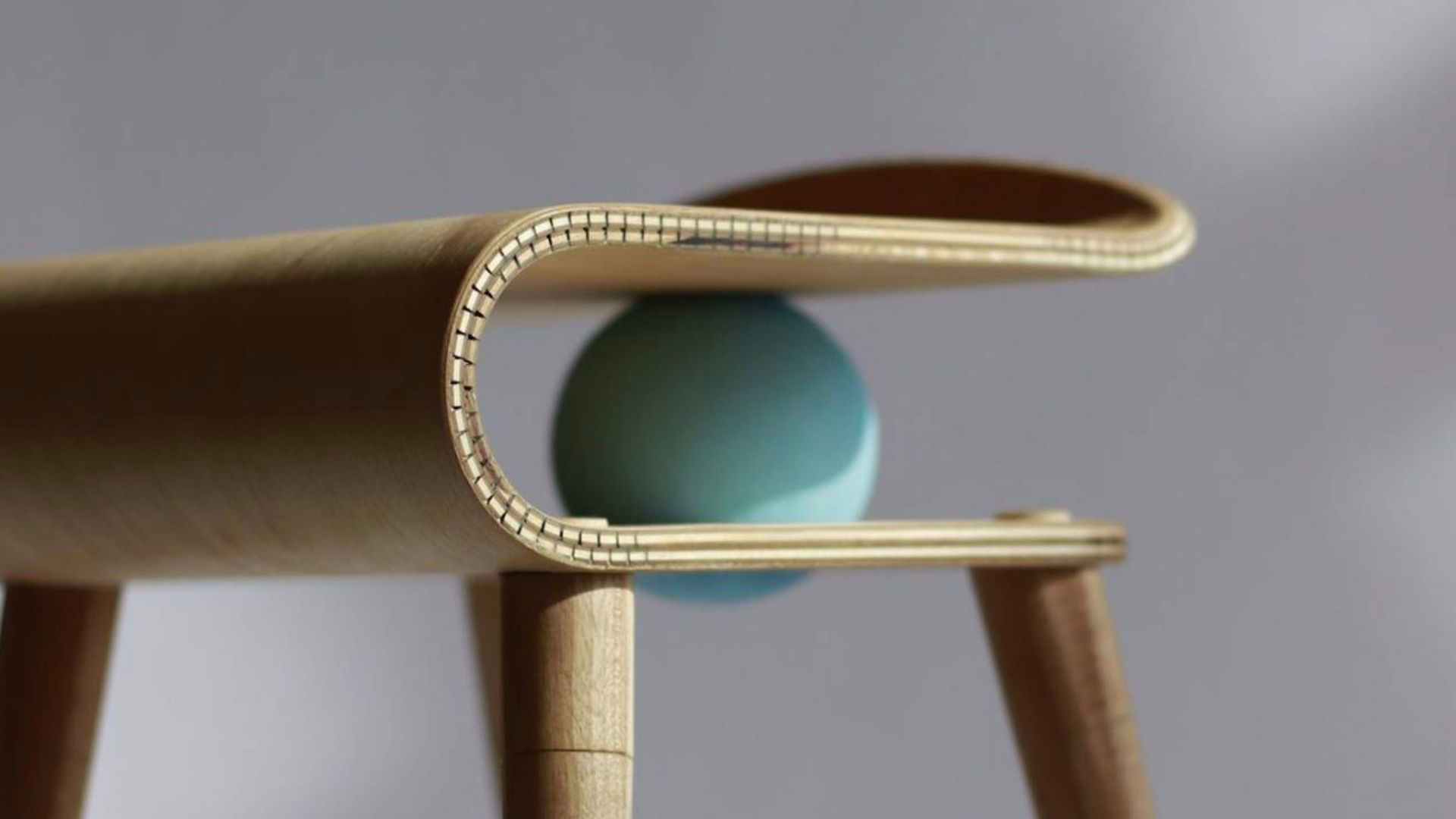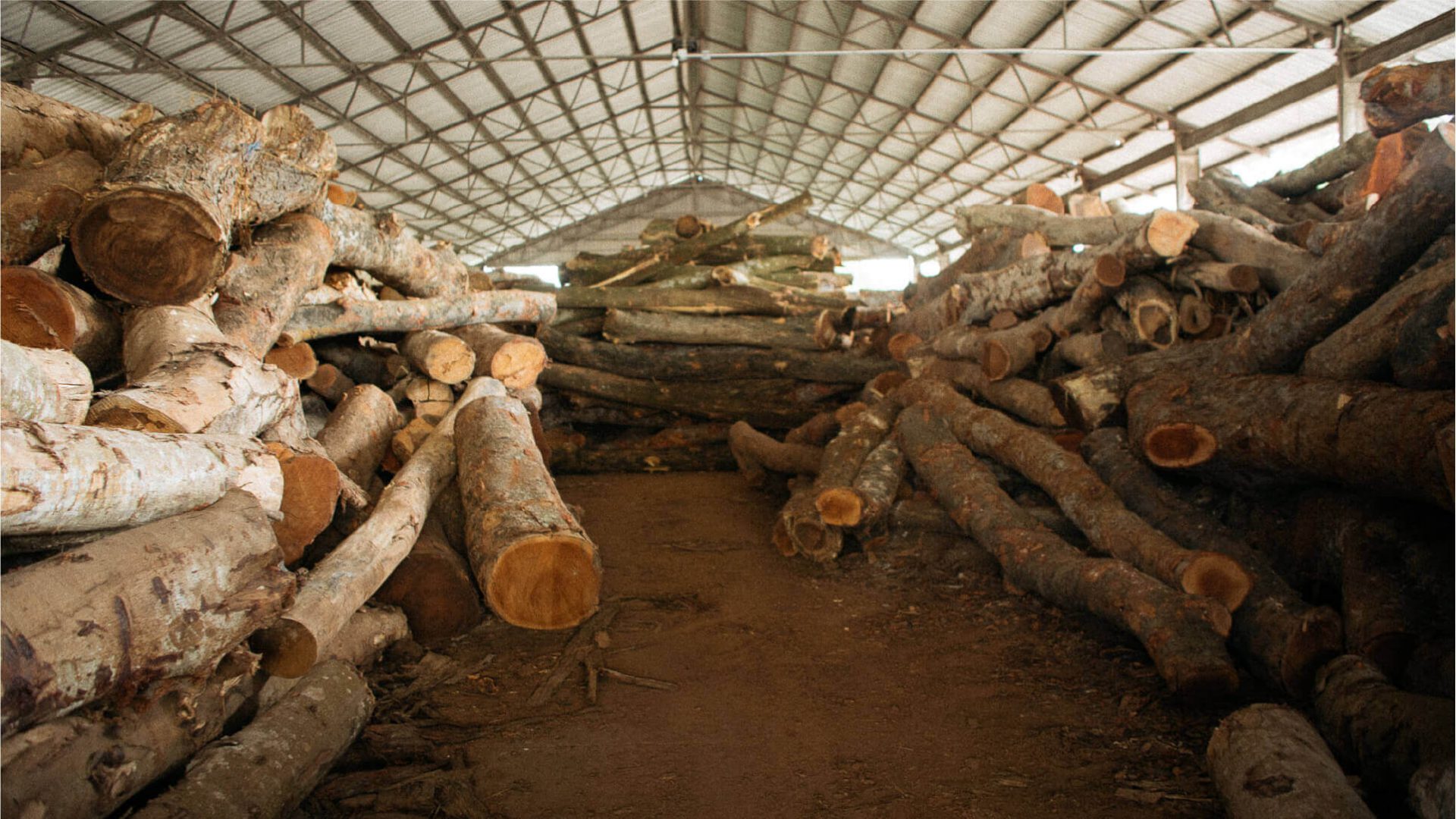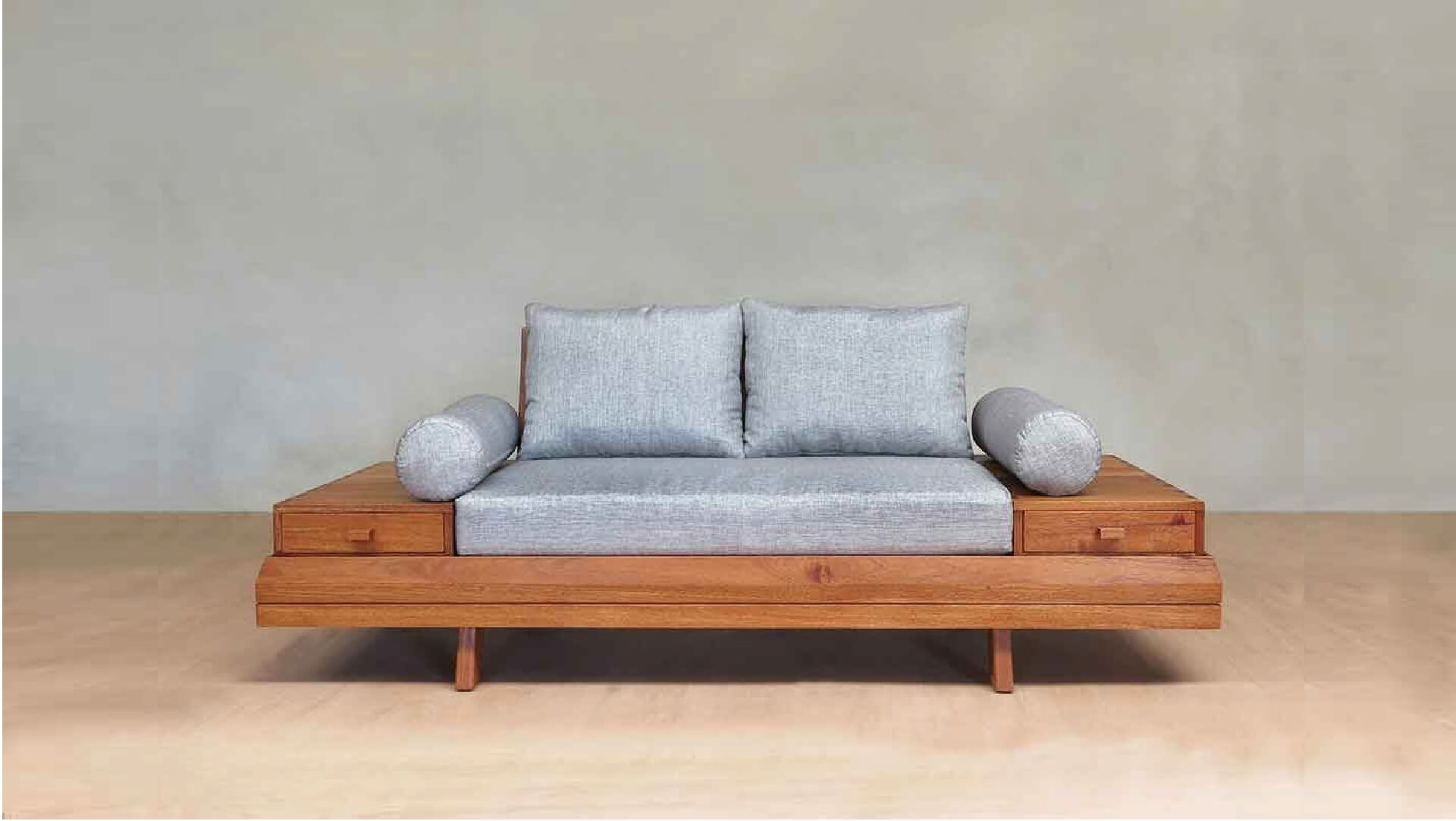The PEEL Chair is hemp-based, biodegradable and compostable
The chair’s development is inspired by hemp stock, with different parts of the plant being harvested for reuse and PEEL represents an elevated version of the classic stacking chair, marrying utility with responsibility

Milan Design Week will witness PROWL Studio and M4 Factory‘s debut of the sustainable PEEL Chair at the Expect Death exhibition, held at Alcova’s new venue in the former Porta Vittoria abattoir. The installation explores the complete lifecycle of the biodegradable and compostable chair made primarily from hemp, which serves as a responsible alternative to ubiquitous plastic stacking chairs.
The exhibition examines the negative impact of fast furniture on the design industry, where over 12 million tons of furniture are discarded in the US each year. The PEEL Chair showcases the PROWL team’s efforts to combat fast furniture by designing products with healthier materials and accessible end-of-life plans.

“Instead of asking how we can do less bad, we ask how we can do the most good,” explains PROWL co-founder Lauryn Menard. “For us, that means beginning with the end in mind to fully understand what each product, material, or space we design can become. We give equal weight to design and its eventual regeneration. All stages of a product’s lifecycle are symbiotic and inseparable.”
The chair’s development is inspired by hemp stock, with different parts of the plant being harvested for reuse, and PEEL represents an elevated version of the classic stacking chair, marrying utility with responsibility.

Visitors to the exhibition will experience the chair’s journey from its final resting place, decomposing in the earth, to its arrival flat-packed in hemp packaging at the user’s home. The installation also features a dynamic animation by Dada Projects that explores the chair’s material journey at the molecular level.
[ Read also Need for weed? 5 unexpected hemp-made designs ]
The structural frame is composed of hemp-based bioplastic, a material developed by M4 Factory that combines hemp bast fiber and hurd, byproducts of industrial hemp processing that are typically wasted, with biopolymers.

“At M4, we approach how things are made considering people and the environment from the onset,” says Chief Design Officer Kyle Swen. “Many of our plastics contain upcycled agricultural waste. We can use one less pound of plastic for every pound of agricultural waste we upcycle. Products designed with less plastic are more sustainable, and these bioplastics are often stronger and lighter than their petroleum-based counterparts.”
The chair is topped off with a novel hemp foam cushion encased in hemp bioleather, which has a different expected life cycle than the frame. The cushion is home compostable and decomposes as fast as an orange peel, offering an easy and responsible way to dispose of it.

PEEL is the first product developed through PROWL Studio and M4 Factory’s unique partnership, both founded and owned by women, which aims to create more responsible, sustainable products for consumers. Their partnership provides a valuable resource for product brands with clear goals for developing and delivering sustainable products.
“Our studio uses Milan Design Week as an incubator and vehicle for turning some of our biggest ideas into tangible objects and experiences,” says PROWL co-founder Baillie Mishler. “Breaking down those barriers and connecting our research to real-world applications and outcomes is vital to our mission as a design studio. We want to show that regenerative design isn’t just a lofty aspiration—it can be executed. PEEL is a prototype for now, but every aspect of it has been considered with scale in mind.”

The PEEL Chair is just the beginning of their journey towards a more responsible mass-manufactured future.











